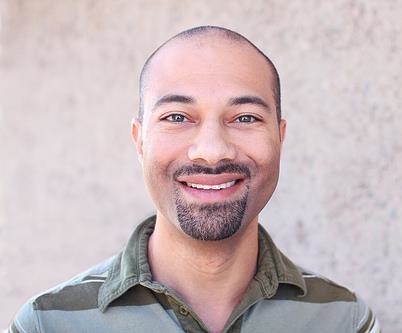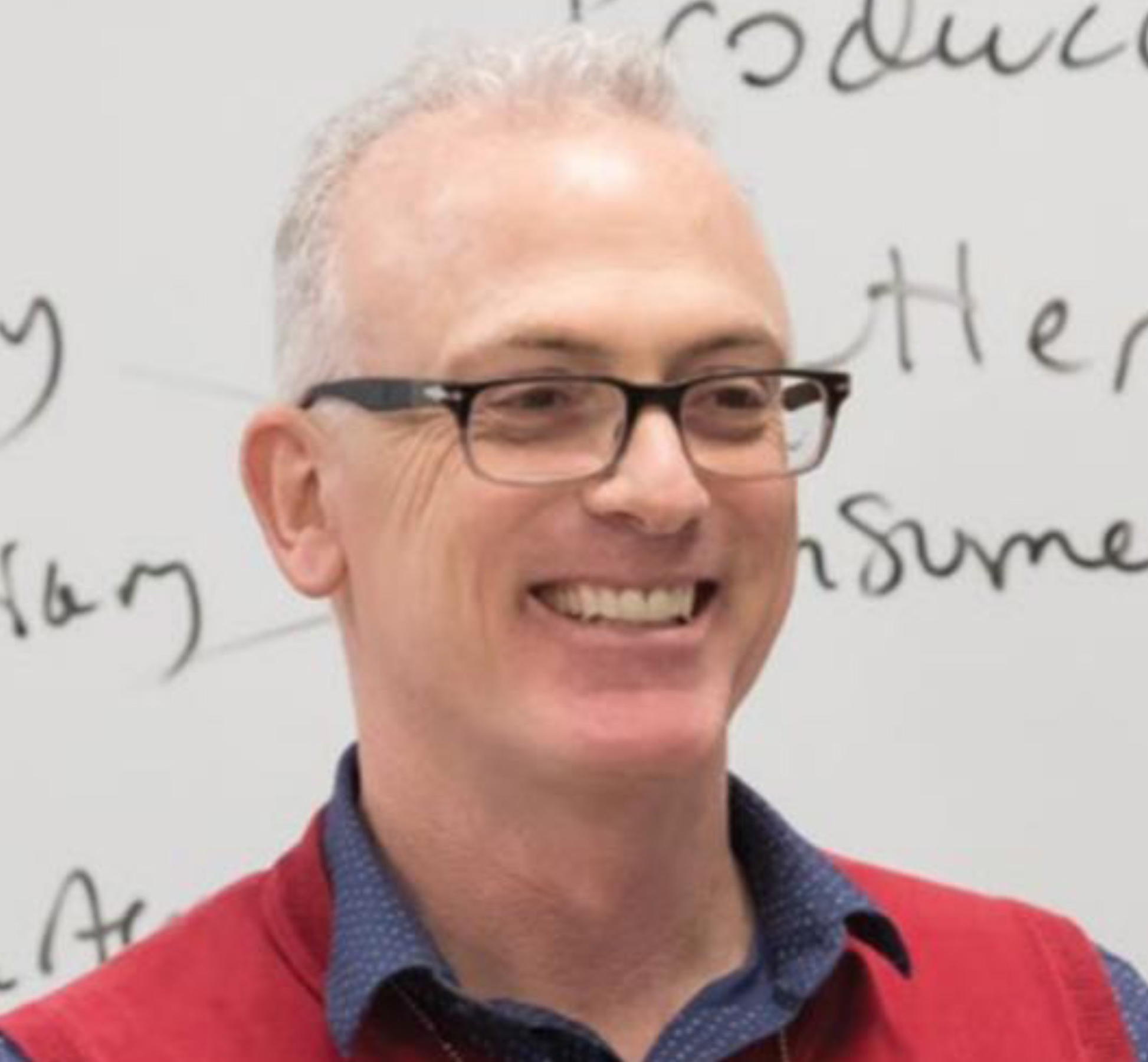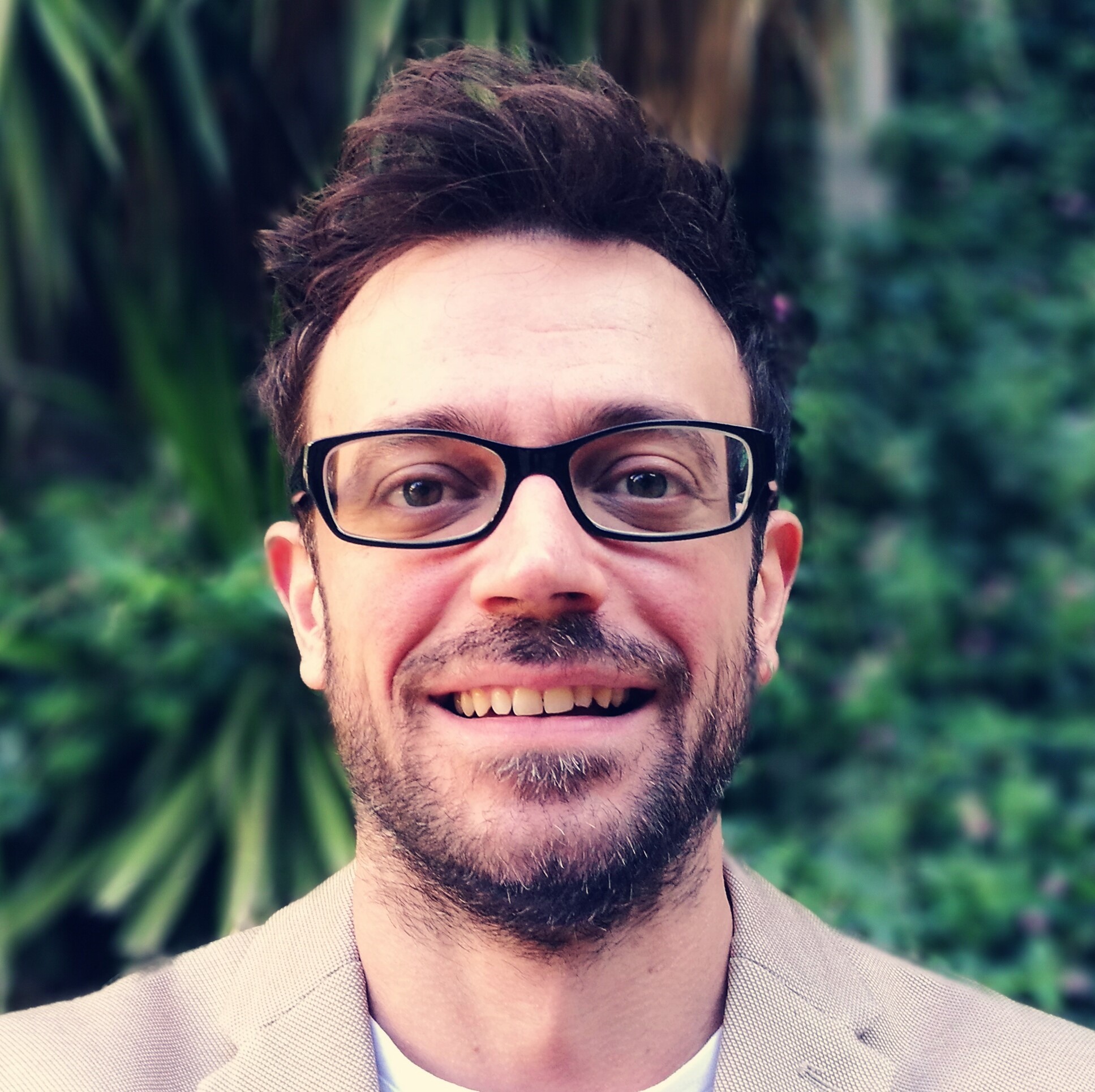2021 Distinguished Scientific Contribution Award Keynote Address
| Anne Britt, Northern Illinois University | Jean-François Rouet, University of Poitiers |
 |
 |
| Anne Britt is a Board of Trustee Professor at Northern Illinois University. She is a cognitive psychologist researching disciplinary reading. She has published almost 100 journal articles and book chapters, and has co-authored or edited four books. Her work has been published in top-tier journals such as Discourse Processes, Cognition, Educational Psychologist, Journal of Memory and Language, and Learning & Instruction. Most recently she has published a book presenting a framework and model for understanding reading as a purposeful activity (RESOLV, Reading as Problem Solving). She has worked to understand how students represent and use texts, identifying malleable factors that can be supported by short tutorials. Britt has received multiple grants (about $6,400,000) related to disciplinary reading. She is the director of the Center for the Interdisciplinary Study Language and Literacy (CISLL) at NIU and currently a member of the governing board of the society. | Jean-François Rouet is a Senior research scientist with the French National Center for Scientific Research (CNRS). He has published extensively on the cognitive underpinnings of reading literacy and information technology use. He is the author of "The Skills of Document Use" (Erlbaum, 2006) and a co-author of "Literacy beyond text comprehension" (with Britt and Durik, Taylor & Francis, 2018). He serves as chair of international expert groups as part of the Organization for Economic Cooperation and Development's studies of teenage and adult literacy. He is the cofounder and former director of the Center for Research on Cognition and Learning (CeRCA, CNRS and University of Poitiers, France). Jean-François has collaborations with scholars from various countries including Argentina, Germany, Norway, Spain and the USA. He is a Fulbright foundation alumnus, serves on the editorial board of several major academic journals and is a second-term member of the ST&D governing board |
Reasoning With and About Documents 25 Years Later
The "information society", once hyped as ushering in a post-industrial nirvana, has instead created a monster--and educational systems now face the challenge of preparing students to cope with information overload, unreliability, and manipulation. In this talk, we revisit 25 years of research into readers' comprehension of multiple documents. We recount how some early observations led us to propose new assumptions regarding what readers represent in long-term memory when they engage with multiple texts that offer various perspectives on a situation. We present the core features of the Documents Model framework and the various kinds of evidence that have supported its provisions across two decades of research, highlighting the critical role of information sources in readers' integration of inconsistent contents. We then turn to the theoretical issue of modeling readers' decisions as they handle purposeful reading tasks involving multiple sources of information. The massive variability of readers' behavior with its seeming dependence on the task context and the readers' domain expertise led us to propose RESOLV, a theory of purposeful reading. We introduce some new conjectures and prospects offered by the theory, and we present emerging evidence that support the view of reading as a situated, adaptive and goal-driven behavior. We discuss the implications of our work for reading instruction throughout the curriculum.
The ST&D 2021 Distinguished Scientific Contribution Award Address will take place on Monday, August 2, 10:00-11:15 AM EST as a live Zoom session. Link to be shared with conference registrants prior the address.
Previous Recipients of the Distinguished Scientific Contribution Award
| 2020 | Danielle S. McNamara | 2013 | Morton Ann Gernsbacher |
| 2019 | Jane Oakhill | 2012 | Marcel Adam Just |
| 2018 | Murray Singer | 2011 | Simon Garrod & Anthony Sanford |
| 2017 | Susan R. Goldman | 2010 | Arthur C. Graesser |
| 2016 | Paul van den Broek | 2009 | Herbert Clark |
| 2015 | Jerome L. Myers & Edward J. O'Brien | 2008 | Walter Kintsch |
| 2014 | Charles A. Perfetti |
Distinguished Scientific Contributions Award Committee: Paul van den Broek (chair), Jane Oakhill, Danielle McNamara, Gale Sinatra, & Mike Wolfe. This award honors scholars who have made outstanding scientific contributions to the study of discourse processing and text analysis. The following criteria will be considered in conferring the Award: (1) Sustained outstanding research that has enhanced the scientific understanding of discourse processing and text analysis, (2) Contributions to the mentorship of students, postdoctoral fellows, and colleagues in the field of text and discourse, and (3) Meritorious contributions to the advancement of the field through leadership as a theorist or spokesperson for the discipline.
2021 Society for Text & Discourse Keynote Address
Rod D. Roscoe, Arizona State University |
 |
Rod D. Roscoe is an Associate Professor of Human Systems Engineering in The Polytechnic School of the Ira A. Fulton Schools of Engineering at Arizona State University. His research draws upon learning science, computer science, and human-centered design to inform the development and implementation of equitable educational technologies (e.g., automated writing evaluation, intelligent tutoring systems, virtual reality, and educational games). His research and teaching also bridge psychology, engineering, and inclusion principles within engineering education. He participates in a number of inclusion and equity advocacy activities at ASU (e.g., Committee for Campus Inclusion; Diversity and Inclusion Initiative @ the Fulton Schools of Engineering) and academic societies (e.g., Human Factors and Ergonomics Society; International Society of the Learning Sciences). With Drs. Erin Chiou and Abigail Wooldridge, he co-edited the award-winning volume, Advancing Diversity, Inclusion, and Social Justice through Human Systems Engineering (CRC Press). Dr. Roscoe earned his PhD in Cognitive Psychology from the University of Pittsburgh in 2007 at the Learning Research and Development Center.
Please Join Me/Us/Them on My/Our/Their Journey to Justice in STEM
Despite decades of effort to ‘broaden participation’ in science, technology, engineering, and mathematics (STEM), many fields remain frustratingly demographically skewed. Marginalized and minoritized people and communities are still ‘underrepresented’ in and ‘underserved’ by the sciences. Recent events, however, have inspired an expanded interest in these problems along with new and renewed commitments to change. This momentum needs to be nurtured, sustained, and held accountable.
In this talk, Dr. Roscoe will discuss his personal journey, and will celebrate the work of diverse scholars, to reflect on the overarching question: ‘How do we improve representation in STEM?’ These reflections will touch upon threats such as imposter syndrome, the myth of meritocracy, and student debt, along with inclusive themes of decentering, political clarity, systems mapping, mentorship, and coalitions. Importantly, ‘underrepresentation’ is not a mysterious happenstance but rather a predictable outcome of systemic inequity and systematic exclusion. By attending to the mechanisms of oppression, we can enact changes and interventions that address root causes instead of symptoms. Systemic problems require systemic solutions.
Scholar-activists have an important role to play in these endeavors—there are multiple ways that our research, teaching, and practice can change ‘the system.’ First, people can make inclusion and equity the focus of their work, such as conducting research that specifically studies inequities or tests interventions. Second, people can embrace inclusion and equity principles as a lens for deepening research questions, (re)interpreting findings, and conceptualizing impact. Finally, everyone can and should adopt methodologies (e.g., sampling and analysis) and practices (e.g., collaboration, reviewing, hiring, and conferences) that are inclusive and equitable.
The ST&D 2021 Keynote Address will take place on Wednesday, August 4, 12:30-1:45 PM EST as a live Zoom session. Link to be shared with conference registrants prior the address.
2021 Keynote Address for the 2020 Tom Trabasso Young Investigator Award
Doug Lombardi, University of Maryland |
 |
Doug Lombardi holds a PhD in Educational Psychology from the University of Nevada, Las Vegas, and is an Associate Professor in the Department of Human Development and Quantitative Methodology at the University of Maryland. As the head of the Science Learning Research Group (http://sciencelearning.net), he conducts research examining discourse and reasoning about knowledge claims. Much of this research is situated within the context of formal classroom settings and focuses on effective teaching tools and strategies to support deep learning and understanding, particularly about socio-scientific topics that pose local, regional, and global challenges (e.g., causes of current climate change, availability of freshwater resources). Doug’s empirical research and theoretical positions have been published in journals such as Educational Psychologist, Discourse Processes, Learning & Instruction, Science Education, and Contemporary Educational Psychology.
Scaffolding Scientific Reasoning and Discourse
Science literacy involves both (a) knowing what scientists know and (b) knowing how scientists know what they know. Yet, it is often challenging for learners to reasonably integrate the what and how of science in a way that deepens understanding. Scientists’ explanations undergo certain evaluative processes that increase their perceived truthfulness, but teachers should not assume that students fully engage and are agents in these scientific processes without instructional support. Over the past decade, my research has examined how instructional scaffolding can facilitate scientific thinking when learning about controversial and complex socio-scientific topics (e.g., the current climate crisis and availability of freshwater resources). Results from my collaborative lab—the Science Learning Research Group—suggest that early and late adolescents, as well as adults, can scientifically evaluate connections between evidence and explanations about certain phenomena, especially when these socio-scientific topics have a large gap in what learners and experts find plausible. When considering scientific evidence and explanations, learners should reflect on their own knowledge by engaging in collaborative critique and negotiation during classroom discourse. I will present several studies reflecting these findings and suggest some meaningful ways for educators to scaffold the process of evaluation and reasoned judgments as essential elements of scientific thinking.
The ST&D 2021 Award Keynote Address for the 2020 Tom Trabasso Award will take place on Tuesday, August 3 at 11:15-12:30 PM EST as a live Zoom session. Link to be shared with conference registrants prior the address.
2021 Tom Trabasso Young Investigator Award
Alexandra List, Pennsylvania State University |
 |
Alexandra List is an Associate Professor in the Department of Educational Psychology, Counseling, and Special Education at the Pennsylvania State University. Her work focuses on students' learning about complex social issues using multiple sources of information, particularly online. She is especially interested in the higher-order, cognitive processes – critical thinking, evaluation, integration – involved. Her work has appeared in leading journals including Educational Psychologist, Computers & Education, Reading Research Quarterly, and Discourse Processes. She is the co-editor of the Handbook of Learning from Multiple Representations and Perspectives. Dr. List received her Ph.D. in Educational Psychology from the University of Maryland, College Park.
Dr. List will give the 2022 Award Address for the 2021 Tom Trabasso Young Investigator Award at the 2022 annual meeting of the Society for Text & Discourse.
Previous Recipients of the Tom Trabasso Young Investigator Award
| 2020 | Doug Lombardi | 2014 | Katherine Rawson |
| 2019 | Jason L. G. Braasch | 2013 | Tobias Richter |
| 2018 | Sidney D'Mello | 2012 | Panayiota Kendeou |
| 2017 | Catherine Bohn-Gettler | 2011 | Chantel Prat |
| 2016 | Raymond Mar | 2010 | David N. Rapp |
| 2015 | Scott Crossley | 2009 | Michael Kaschak |
Tom Trabasso Young Investigator Award Committee: Panayiota Kendeou (Chair), Jason Braasch, Anne Britt, & Chantel Prat This award goes to an outstanding young investigator who embodies Tom Trabasso’s spirit of mentoring young scholars and creating a supportive context in our Society. Recipients have shown exceptional and innovative contributions to discourse research and demonstrated superior promise as leaders in the field.
2021 ST&D - FABBS Early Career Impact Award
Greg Trevors, University of South Carolina |
 |
Greg Trevors received his PhD from McGill University in 2016 and completed a postdoctoral fellowship at the University of Minnesota. He is currently an assistant professor in the Department of Educational Studies at the University of South Carolina where he studies cognitive and emotional processes in revising misconceptions about important socio-scientific issues, such as vaccines, immigration, and climate change. In this program of research, he has explored learner factors, mechanisms, and boundary conditions that play a role in the success or failure of corrections. These findings have contributed to theoretical knowledge about how, why, and for whom corrections may effectively update misconceptions about controversial topics. As an example of this work, he is currently investigating the use of digital games to combat COVID-19 and vaccine misinformation and improve the public’s engagement with socio-scientific issues, which is supported by the National Science Foundation. Trevors’s research on belief change has been highlighted by several media outlets, including The Globe and Mail, The Conversation, AAAS Eureka Alert, and Medscape. Two journal articles stemming from this work have ranked in the top 5% of quality and quantity of online attention compared to 17,000,000 research outputs tracked by Altmetric. Interviews about these findings have also appeared in popular press and in distributed by the Vox Media Podcast Network. Additionally, in his collaborations with non-profit organizations, he is working to translate theoretical and empirical research on belief change to applied, real world problems.
The FABBS Early Career Impact Award is presented to early career scientists of FABBS member societies during the first 10 years post-PhD and recognizes scientists who have made major contributions to the sciences of mind, brain, and behavior. The goal is to enhance public visibility of these sciences and research through the dissemination efforts of the FABBS in collaboration with the member societies and award winners.More information about Dr. Trevors' award can be found at https://fabbs.org/honoring-our-scientists/impact-award-winners/former/2021-impact-award-winners/
2021 Jason Albrecht Outstanding Young Scientist Award
Pablo Delgado, University of Valencia |
 |
Reading in Print vs. on Computer Screen: Paper Fosters On-task Attention (with Ladislao Salmerón)
We investigated the effects of reading medium and reading time-frame on readers’ attention, metacognitive calibration, and comprehension. We asked 140 undergraduates to read an expository text in print or on a computer under self-paced or constrained reading time. We probed their generation of task-unrelated thoughts (mindwandering) while reading. After reading, they predicted their performance on a subsequent test about the text content and completed the test. Under time pressure, on-screen readers mindwandered more than in-print readers, and they scored lower on the comprehension test. No differences in calibration appeared. Reading on screen hindered readers’ attention and comprehension under time pressure.
2021 Graduate Student Research Award
Marloes van Moort, Leiden University |
 |
Purposeful Validation: Are Validation Processes and the Construction of a Mental Representation Influenced by Reading Goal? (with Arnout Koorneef and Paul van den Broek)
We investigated whether and how reading goals affect text-based and knowledge-based validation processes and the resulting memory representation. We employed a self-paced sentence-by-sentence contradiction paradigm. Participants read for general comprehension or for study. Memory for text information was assessed the next day. Results show that goals affect readers’ general processing, but they do not affect online validation processes. They did differentially affect readers’ memory for inconsistent target information - depending on the source of the inconsistency. Thus, goals may not influence validation processes themselves, but they may affect the processes that take place after online validation is completed
2021 Undergraduate Student Research Award
Johanna Xemaire, Leibniz-Institut für Wissensmedien |
 |
Educating About the Misinformation Effect Prior to Reading Does not Seem to Reduce it (with Steffen Gottschling and Yvonne Kammerer)
Readers’ engagement with false information is a topic of growing importance. In two experiments, we investigated whether the misinformation effect can be reduced by educating participants about it prior to reading. In both experiments (N = 84 and N = 133), no reduction of the misinformation effect through psychoeducation was observed. Participants in both groups (control and psychoeducation) referenced a similar amount of misinformation after reading false information on items they previously answered correctly. Both reading false and reading neutral information did not change the confidence participants had in answers they previously knew, while reading correct information increased confidence.
2021 Research Awards Committee & Award Descriptions
Kate Cain (Chair), Jason Braasch, Matt McCrudden, & Mike Wolfe
The Jason Albrecht Outstanding Young Scientist Award honors the memory of Jason Albrecht, a promising young text and discourse researcher who passed away in 1997. The award recognizes an outstanding paper based on a doctoral dissertation. The Graduate Student Research Award (formally called the Outstanding Student Paper Award) recognizes quality in predissertation work that is predominantly that of a graduate student. The Undergraduate Student Research Award recognizes quality in work that is predominantly that of an undergraduate graduate student, or research to which the undergraduate student contributed a significant amount of effort and support. Further details and previous winners of each award can be found at http://www.societyfortextanddiscourse.org/about/awards/